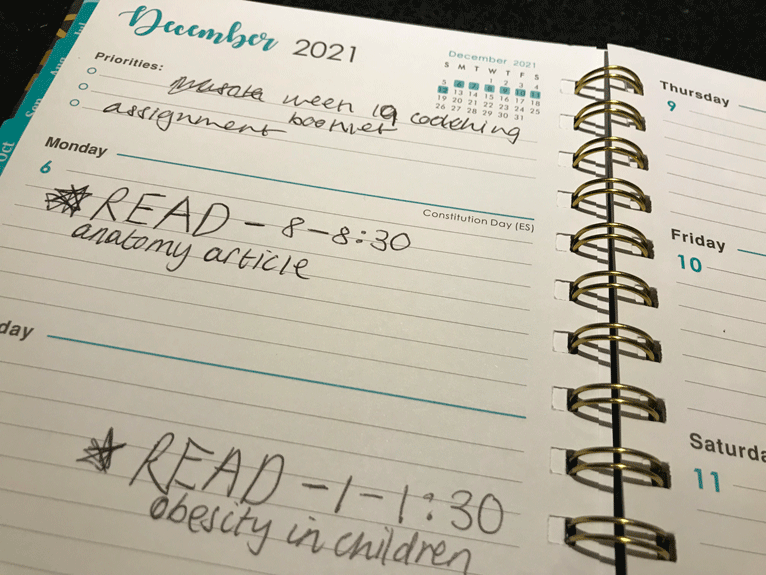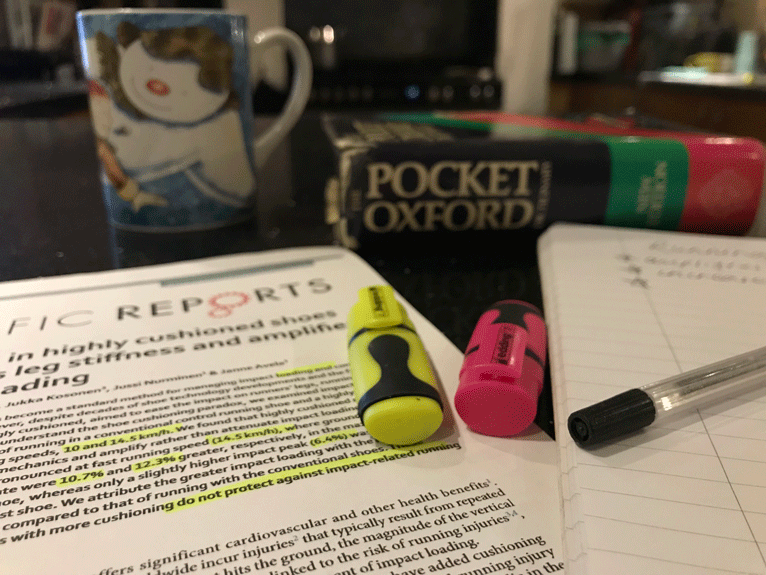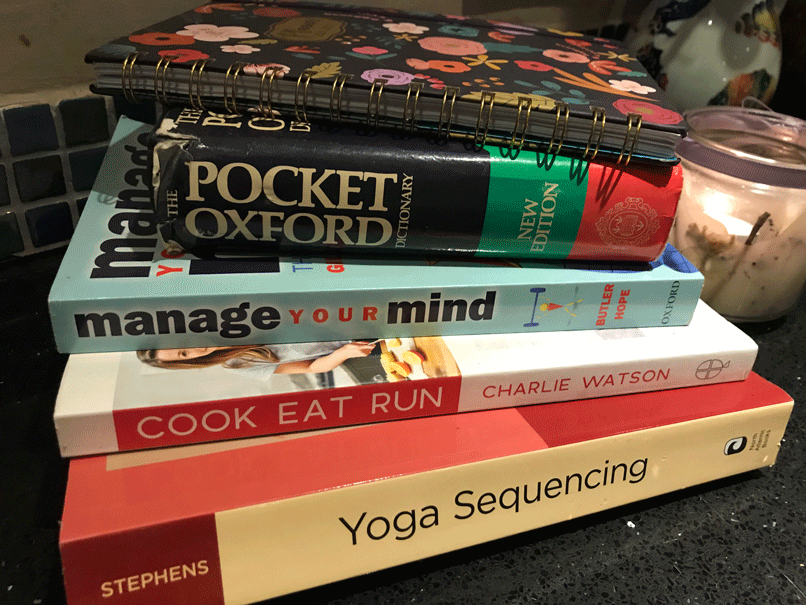
My New Year's Resolution: Extra reading at uni

Lily Harvey
Sport, Exercise & Nutrition BSc(Hons) - First Year
Hi I’m Lily - I’m a first year Sport, Exercise and Nutrition student. I love running, going to the gym and I’m a bit of a foodie! I’m also a complete chatter box and enjoy meeting new people.
When I began my Sport, Exercise and Nutrition course at the Univeristy of Huddersfield this year, I'd completely fallen out of the habit of reading. I hadn’t read a book since the January lockdown and I certainly hadn’t been reading much academic writing. Although I've always read blogs about running and fitness and gained a great breadth of knowledge from these, journal articles and textbooks were not a familiar source of knowledge for me.
Nearly every lecture on my course has at least one journal article attached to it marked as “recommended reading”. I quickly noticed how easy it was to disregard this extra reading in the name of “not having enough time” or it “not being essential to my course”. And yes, this is partly true, some days at uni are jam-packed with lectures, society meetings, deadlines and seminar prep - then add on other social activities and that journal article that will take twenty minutes to read and ultimately slides right to the bottom of the to-do list.
But there must be some benefits from partaking in this extra reading, right? Otherwise, why on earth would our lecturers spend their time attaching all these recommendations to our reading list, which they so passionately ask us to read? I thought I'd explain to you exactly how extra reading has helped me and why I've made it my New Year's resolution to read one journal article a day.

I mentioned that I'd previously put extra reading aside as I was stressed about upcoming assignments. However, ironically, when I started reading academic writing more regularly, I found that I was no longer at a standstill with a leaflet assignment that I'd been stuck on for over a week.
Extra reading helps for many reasons, with the first one obviously being that the more research you read, the more you’ve got to write about in your essays or any other assignments. Any relevant information which you can use to evidence your work will help improve the quality of your writing and help you achieve higher grades. For example, I started reading a textbook about personal training (an area of my course which interests me a great deal) and as I was reading, I unexpectedly found lots of points to add to my leaflet. I even used the references in the textbook to then look up more information myself, which in turn led me to even more interesting knowledge.
Even if the reading does not directly correlate with your work, you may find that it sparks ideas and inspiration or leads you to something which does. For instance, reading about cardiovascular health led me to think about the safety and responsibility of people who might have cardiac problems as fitness professionals. As a result, I researched the regulations in place to protect clients’ cardiovascular health and could include this in my assignment about safeguarding.
If you’re stuck with what to write, just read. Zoom out and read broadly, until you're ready to zoom back in with more insight.

More generally, if you're learning about a module that you have little prior knowledge of, turning up to the lecture having had a look at some reading to do with that subject will massively help your understanding.
Going into a lecture where everything is new (key terms, theories, writers etc) can be super overwhelming, and you could find that you're unable to take in all of the information.
If you've read anything related to the lecture, even if you don’t understand exactly what you’re reading, your brain will be familiarised with seeing these new words and you'll be able to understand things just a little better. You'll also feel more confident with your learning, which plays a massive part in success.

Finally, the best way to learn how to write in a professional and academic style is to read professional and academic writing. Most of us write in a colloquial format because we spend the majority of our time talking informally to family and friends, work colleagues etc. We are simply just used to it. However, professional language is different and if you read enough academic writing, you'll be familiar with this language. This can make it much easier when you come to write your own work, as you'll know the typical format and structure of academic writing and know what's appropriate and what needs to be edited out. Basically, get used to academic writing so you can produce great academic writing yourself!
You’re absolutely capable, otherwise you wouldn’t have been accepted onto the course in the first place.
To sum up the reasons why I'll be giving myself the challenge of reading an article every single day in the new year, I would use the term “deferred gratification”. The idea is that yes, it can be difficult to muster up the motivation to do some extra reading, and it can feel like a low priority job. But when you're given that assignment brief and realise you have five articles you’ve already read and saved on your computer that fit perfectly, or you start to find yourself automatically using words like “advantageous” and “subsequently” in your writing without even thinking about it, you'll realise how a little bit of extra work every day can lead to huge benefits and make your time at university a whole lot easier.
Find out more about the university and our courses by chatting to our students via Unibuddy here.
More student life articles?
What is life like as a student? Hear it straight from our current students as they write about their student experience.
Meet our reps
These are the students who are sharing what life is really like at the University of Huddersfield.